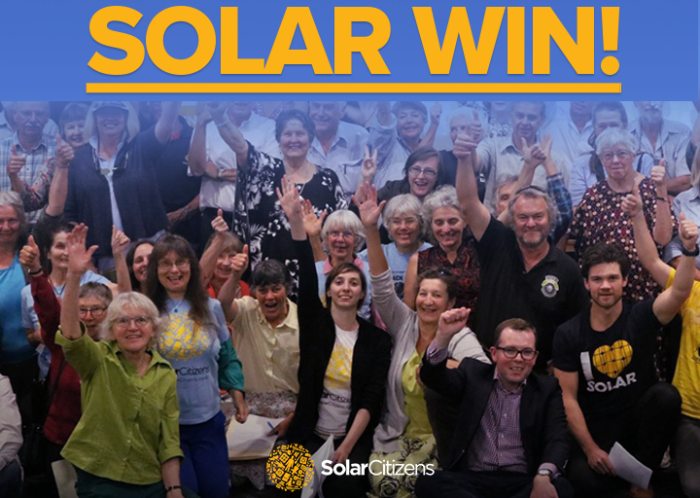
The Australian Energy Market Commission (AEMC) has ditched a suggestion (for now) that was viewed as an enabler for a “solar tax”, after protest from thousands of solar supporters.
Earlier this year, the AEMC released a draft of its Distribution Market Model, which questioned a clause in rules prohibiting a Distribution Network Service Provider ( DNSP) from charging solar power system owners for use of the distribution system for the export of electricity.
“There may be cause to revisit this clause if DNSPs incur costs (and benefits) due to the export of energy from distributed energy resources (or passive solar PV systems) that are not appropriately reflected in connection charges and where these costs (and benefits) increase (albeit not necessarily proportionately) with the volume of injections,” stated the draft report (PDF).
This attracted a lot of attention in the following consultation period.
“The issues of access and connection charging received the most comment from stakeholders,” states the AEMC. “While some stakeholders supported deletion, or modification, of clause 6.1.4, others did not. Some parties supported the continuation of an open access regime, others expressed the view that exploration of different access regimes may be useful.”
The AEMC has recommended further investigation is required to understand whether distributed energy resources create benefits or impose costs on the distribution network, the levels of both and what consumers want.
Grassroots solar advocacy group Solar Citizens welcomed the AEMC’s backdown on the concept of solar owners being whacked with export charges, which it said was an outrageous idea. It also noted that this was the second time the AEMC has attempted to allow the introduction of such charges.
“2,500 solar owners across Australia made it very clear to the AEMC that this was an unacceptable approach and they should not be charged for exporting their clean solar power to the grid,” said Shani Tager, Senior Solar Campaigner, Solar Citizens.
Ms. Tager said large power stations don’t have to pay to export the energy they generate to the grid and solar households shouldn’t have to either.
Over the years, Solar Citizens has proven to be a powerful voice on policy issues affecting small scale solar power in Australia. Membership of the group is free.
The AEMC Distribution Market Model Final Report can be viewed here (PDF).

 RSS - Posts
RSS - Posts



I have a suggestion as to how to fight back if this ever gets consideration and the AEMC wants to charge us for giving them electricity.
We need to manage our supply to the grid as co-ordinated groups. What would happen to the grid if we all agreed to turn off our generation at 2.30pm on a 35 degree day in say Victoria? The grid would go down and the AEMC would get the message. We do have the power (pun intended) if we work as a collective sources of generation. Perhaps we could even stop the absurd reductions in FIT in VIctoria too? Funny how those reductions in wholesale price that drive down our FIT never seem to be reflected in cheaper retail consumption prices. I spent $7500 on my system without the current more generous subsidies and I am expecting some return from it and would be prepared to get militant if that’s what it takes.